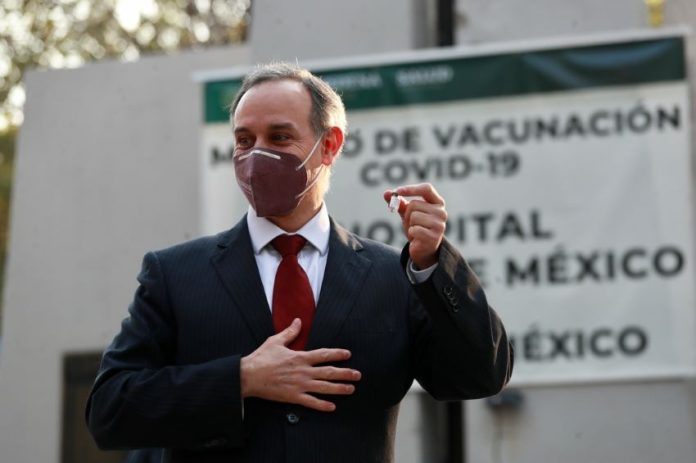About one in seven Mexicans doesn’t want a Covid-19 vaccination shot, according to the results of a new poll.
The Mexican consulting agency Mitofsky’s most recent national coronavirus survey, conducted on April 9–11 with 1,000 people, found that 13.3% of respondents don’t want to be vaccinated against the disease that has claimed more than 300,000 lives in Mexico.
Just over three-quarters of those polled, or 76.4%, said they have already had a jab or are waiting for their opportunity to get vaccinated, while 10.3% said that they didn’t know whether they would get a shot or not.
Among those who said that they don’t want to be vaccinated, the most popularly cited reason among eight provided by Mitofsky was that they want to wait and see what effect vaccination has on the first groups of inoculated people. Almost one in five respondents, or 19.7%, cited that reason.
Fear of vaccines or injections was cited by 13.4% while 12.4% mentioned the risk of adverse reactions such as blood clots.
About one in 13 of those who don’t want to get vaccinated, or 7.5%, said that Covid-19 doesn’t exist or isn’t a serious disease. Another 3.9% said that vaccines are ineffective against the virus.
A response option provided by the survey — “the disease and the vaccine are part of a conspiracy to reduce the population” — was chosen by 10.2%. Another 4.4% said the objective of vaccination is to control people.
Religious reasons were cited by 3.3%.
In response to questions about the vaccination distribution process, the majority had positive feelings about it. The survey found that 71.9% of respondents believe that the organization of the process has been very good or good in the state where they live. However, 19.4% said that it has been very bad or bad.
As of Monday night, just over 11.7 million vaccine doses had been administered, mostly to health workers and people aged 60 and over.
The poll also found that 26.7% of respondents are more afraid of contracting the coronavirus than of being a victim of crime or being affected negatively by the pandemic in an economic sense. Just over a third of those polled said that being a victim of crime was their biggest fear while 31.7% said they were most afraid of adverse economic consequences.
However, when the other two options were removed, 76.5% of those polled said they were very or somewhat afraid of catching the virus. A slightly lower percentage of respondents, 62.4%, said they were very or somewhat afraid of dying of Covid-19.
As for President López Obrador’s management of the crisis — which has been widely criticized by health experts — 58% of respondents said that they approved, and 40.1% said they disapproved.
Just under half of those polled said they had a good opinion of Deputy Health Minister Hugo López-Gatell, who has led the government’s pandemic response, while 35.7% said the opposite.
When the poll asked respondents to offer an opinion about the origin of the coronavirus, 35.5% said that they believed that the virus was created in a laboratory and intentionally let out of the lab to allow it to spread. An additional 12.8% of respondents said they believed the virus was created in a lab and that it escaped by accident.
Only 29.4% of those polled said that they believed that the origin of the virus is zoological and that it subsequently jumped to humans, while 22.3% said that they didn’t know where SARS-CoV-2 came from.
Source: El Economista (sp)
